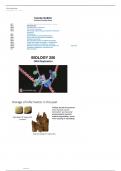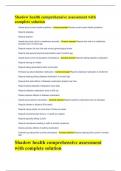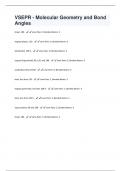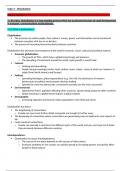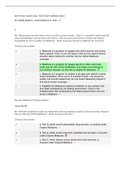Lecture 1 Introduction and ancient philosophy 3
Epistemology: rationalism vs empiricism 3
Rationalism 3
Empiricism 4
Lecture 2 Bacon, Descartes and the British Empiricists 5
Francis Bacon’s new method 5
Rene Descartes’ rationalism (rationalist) 5
The British Empiricists (Locke, Berkeley, Hume) 6
John Locke’s empiricism (empiricist) 6
George Berkeley’s empiricism (empiricist) 6
David Hume’s empiricism (empiricist) 6
Lecture 3 Kant, positivism and Hermeneutics 8
Immanuel Kant 8
Transcendental philosophy 8
Positivism 9
Hermeneutics 9
Lecture 4 Wittgenstein I & Logical Positivism 11
Ludwig Wittgenstein 11
The empiricism of the logical positivists 11
Evaluation of logical positivism 12
Conclusion 12
Lecture 5 Karl R Popper 13
Popper and the logical positivists 13
Popper’s critical rationalism 13
Problems with Popper’s views 14
Conclusion 14
Lecture 6 Scientific revolutions 15
Constructivism and relativism 15
Ludwig Wittgenstein II 15
Thomas Kuhn 15
Properties of a revolution 16
A demarcation criterion after all? 16
Conclusion 16
Lecture 7 Epistemological anarchy and research programs 17
Feyerabend’s epistemology 17
Problems with relativism and constructivism 17
Lakatos’ sophisticated falsificationism 17
Scientific change according to Lakatos 18
Demarcation 18
Conclusion 19
Lecture 8 scientific realism vs constructive empiricism, pragmatism and naturalism20
, Scientific realism vs constructive empiricism 20
Pragmatism vs scepticism 21
Naturalism 21
Conclusion 21
Lecture 9 Predictably irrational 22
What is critical thinking? 22
Three rules of thumb 22
The ‘Linda’ problem 22
Biases 22
Lecture 10 Why are we irrational? 24
Natural selection 24
We possess 2 thinking systems 24
Lecture 11 Irrationality in action 25
Superstition, horoscopes and palm reading 25
Conspiracy theories 25
Pseudo-sciences 25
Religion 26
Lecture 12 How we guard our thinking against reasoning errors 27
How can we guard ourselves against intuitive reasoning errors? 27
How can we guard ourselves against emotional reasoning errors? 27
How can we guard ourselves against reasoning errors of system 2? 27
Lecture 13 The importance of critical thinking 29
Religion: a beneficial illusion? 29
Critical thinking and moral progress 29
Summary 29
Lecture 14 The scientific method and demarcation criterion 31
Different study objects 31
The demarcation criterion 32
Summary 32
Summary 34
,Lecture 1 Introduction and ancient philosophy
Philosophy of science is the critical reflection on what science is, does and how it generates
knowledge.
- Knowledge: you need to know the different answers that have been given to the
question ‘what is science?’
- Skills: you need to have the skill to reflect on questions like: is psychology a science?
When is something science?
- Character: knowledge and skills also serve to build character.
Epistemology: rationalism vs empiricism
Epistemology asks 3 questions:
1. What is (certain) knowledge?
2. How can we justify that knowledge?
3. What is the source of knowledge?
Two views:
1. Rationalism: real knowledge is derived from the ratio, reason.
2. Empiricism: real knowledge comes from sensory experience.
Scepticism
Socrates asked: perhaps the conclusion must even be that we do not know anything at all,
and never will. Socrates is then convicted.
Rationalism
General claim: real knowledge stems from our reason (ratio). Associated claim is that there
is innate knowledge (nativism).
- Plato: to learn is to remember. There is no new knowledge, you don’t really learn
anything. He claimed this because he believed in reincarnation. So you had all
knowledge but lost it when you were born.
- Heraclites: said everything is constantly changing and opposite things are identical
which would mean everything is and is not at the same time.
- Plato’s reaction to heraclites: Panta rhei. If in our world everything changes
constantly, then nothing is. That means we can only acquire doxa, not episteme,
which would amount to skepticism but he did not want skepticism.
- Doxa: opinion about how the things are
- Episteme: knowledge of how the things are
Plato’s allegory of the cave: prisoners are chained and can only see the cave wall. There
is a fire behind them. Puppeteers hold puppets behind them so they see the shadows on the
wall. If lets say a book is shown, the prisoner will say they see a book, but really they see a
shadow. His point: ideas exist apart from us in a world of ideas, the general terms of our
language is not ‘names’ of the physical object that we can see, it’s actually names of things
we can’t see. Acquiring knowledge is to remember these ideas (anamnesis). Two-world:
what is and what we perceive.
Meno: Meno is a socratic dialogue, its about a slave of Socrates, who does not know
anything about geometry. Socrates claims the slave’s ability to reach the solution proves he
already had this knowledge within him. So this ability is not taught, as Plato claims, but the
knowledge was already there. This kind of rationalism is very extreme.
Plato’s views are strange and he does not reason properly when it is important (in Meno).
, Empiricism
Empiricists believe that the source of knowledge is the experience gained through sensory
perception. If you want to know how something is, you have to look or listen. So you gain
knowledge from the experiences you have. Associated claim: if all knowledge comes from
experience via perception, there is no innate knowledge.
- Aristotle: man is a tabula rosa (a blank wax tablet) so there are no innate ideas.
There is only one world and that is the one we can perceive with our senses. He is
an empirist but he has some rationalist elements in his epistemology.
- Peripatetic principle: nothing is in the intellect which was not first in the
senses.
Induction: conclusion based on observation of some cases in which A was also B or was
followed by B, that A is always B or is always followed by B.
How did we move from a concrete to universal induction (universal, abstract concept). Take
an abstract, general statement like ‘all humans are mortal’, what you perceive are just real
people and you can establish that they are mortal.
- Problem with induction: based on observation alone, all humans are mortal is just a
correlation, but Aristotle did say it was necessarily true.
- Aristotle’s solution: induction is only step one, step two is intuitive induction (using
our unfailing intellectual capacity of the mind).
The role of aristotle in the late middle ages
In the middle ages, the catholic church had a lot of power. Two paths to the truth: revelation
or to use your good sense.
- Thomas Aquinas tried to use Christian teaching with the pagan ideas of Aristotle.
- Example: aristotle said matter is potentially something (a statue) and the
shape makes it an actual thing. The statue can break again, its a process of
creation and decay. Aquinas argued that God has put this process of creation
and decay in motion.
Attacking Aristotle implied attacking the bible, because he spoke what was in the bible, so no
one did. Aristotle did no experiments because he thought that they would not teach us
anything about the natural world. This is because Aristotle wanted to acquire knowledge
about the natural world and used method of observation, he didn’t want to manipulate
anything because it would go against the natural ways of things. So science / philosophy
came to a halt.
Aristotle’s views had a big influence in the intellectual world until the end of the dark ages.
Induction: go from individual case to all cases via a general rule
- Discover
- Not a valid way of reasoning
Deduction: go from a general rule to predict the result of an individual case
- Predict
- Valid way of reasoning
Abduction: inference to the best explanation (beans came from the bag)
- Explain
- Not a valid way of reasoning



